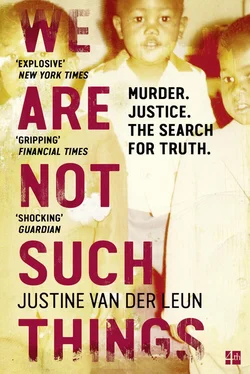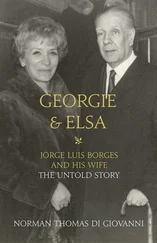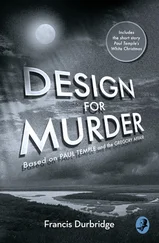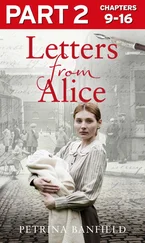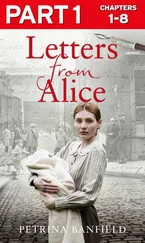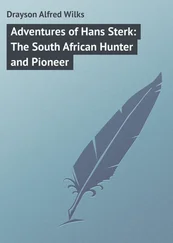“We want to carry on where our daughter left off,” Peter told a TV reporter. “We want to assist at the grassroots level anyone who’s working for human rights and women’s rights in particular. We want to be just as active as she was.”
The ANC, for its part, took the Biehls into their fold. Amy had been a “comrade,” the ANC announced. Moreover, she had been a martyr for their cause: liberty for all, racial harmony, and equality. Also, it looked good to have these two appealing, well-off Americans stand up for the ANC. Eventually Linda and Peter became friendly with a bunch of the liberation-era luminaries: Mandela himself; Archbishop Tutu; deputy president and soon-to-be-president Thabo Mbeki; and Ahmed Kathrada, who had been sentenced to life imprisonment with Mandela in 1964.
In 1997, when the men convicted of killing Amy sat before the Truth and Reconciliation Commission, the Biehls, too, attended. They decided that Amy, who often wrote of the importance of reconciliation and moving forward in post-apartheid South Africa, would have wanted them to respect the processes of this new democracy. And so, unlike many families of victims, the Biehls did not oppose amnesty for Amy’s killers, and the men were released from prison in 1998, after serving between three and five years.
A University of California at Berkeley anthropologist named Nancy Scheper-Hughes—who now sat near Linda in a pew in St. Columba Church—had been working in South Africa in 1993. She had written about the crime and the trial in several academic papers. In the ensuing years, when Nancy was not tracking an international ring of organ traffickers or looking into infant mortality rates in the Brazilian favelas, she was investigating violence in post-apartheid South Africa. She had grown especially intrigued by Easy and Ntobeko, and in August 1999 she hired a guide to take her to Gugulethu, where the men were staying after their release from prison. Nancy interviewed them, and they expressed to her an admiration for Peter Biehl and the desire to meet him in person, and to apologize face-to-face.
“I thought that there was one thing that could possibly make me better,” Ntobeko confessed to Nancy. “I wanted to tell Mr. Biehl that I did not take the death of his daughter lightly. That this thing has weighed heavily on me. And I wanted him to know that he is a hero father to me. If I could just get Peter Biehl to listen to me and to forgive me to my face—why that would be as good as bread.”
Nancy called Peter, who was staying at a Cape Town hotel at the time, and arranged for such a meeting.
“He probably thought I was a real buttinski,” she recalled.
Peter, Nancy, and Nancy’s guide proceeded to drive to Gugulethu for what began, Nancy told me, as a “tense meeting, on a miserable, rainy day.” She stood to the side, taking copious notes and snapping photos, as a sullen, skinny Ntobeko and a sullen, skinny Easy ushered Peter into a shack they had claimed as their “clubhouse,” a drafty hovel with a couple of small chairs and a love seat. The three spoke to each other, gruffly at first, but soon they softened. Easy served Peter tea. Easy and Ntobeko explained to Peter that they were starting a youth group; the bunch had already climbed Table Mountain together and they’d designed T-shirts. They nicknamed Nancy “the bridge” for her role in connecting the two worlds. They asked to meet Linda, who was in America, where her youngest daughter, Molly, had just given birth to a baby boy. Soon thereafter, Linda arrived in Cape Town and accompanied Peter to Gugulethu. Ntobeko and Easy were waiting for her. Easy showed her a photograph of his six brothers. Linda in turn showed him a photograph of her new grandson.
“Makhulu,” Easy said.
“What does that mean?”
“Grandmother.”
From then on, Easy and Ntobeko addressed Linda and Peter as Makhulu and Tatomkhulu, respectively: Grandmother and Grandfather in the Xhosa language, honorifics used to express reverence. Linda and Peter spent a lazy Sunday evening as guests of honor at the official launch of Easy and Ntobeko’s youth club; mostly it involved sitting outside and watching kids dance and give speeches. Next, the Biehls invited the men to dinner.
“Easy’s mother said we would be given such things,” Ntobeko whispered when a waiter presented them menus a few days later. Until then, the young men’s dining out experience had been limited to a few trips to a takeaway joint.
Easy shoveled in steak and a milkshake, leaving his vegetables pushed to the side of his plate, while Ntobeko, who had a more adventurous culinary spirit, picked at a towering pile of nachos and then watched in wonder as the remainder was gathered into a package called a “doggie bag.” The four ambled over the wide, sanded docks by the ocean and into the mall. During apartheid, the men had had limited access to white-designated areas, the sorts of places that boasted ritzy shops and restaurants. When apartheid fell, they were in prison. Since they’d left prison, they hadn’t had a penny to their names. The Biehls bought four tickets to an IMAX film about water, and then the group wandered around the adjacent BMW dealership, admiring the shiny cars until showtime. After that, the Biehls bought four tickets to Austin Powers: The Spy Who Shagged Me . Linda fell asleep during the movie. It was too late for the men to catch a taxi, so the Biehls drove into the township at night and deposited the men at their homes.
The next morning, Easy called Linda at her hotel to inform her that, in a rare turn of events, a small tornado had swept through the township in the early morning hours, flattening shacks. He was checking to see that the Biehls had gotten back safely. He also wished to tell the Biehls that his family was furious at him, since Ntobeko had returned home with leftover nachos to share, while Easy had returned empty-handed. The legend of the doggie bag had then been disseminated through the families and has endured. Years later, while dining with Easy and Ntobeko and their relatives, Linda once excused herself to go to the restroom; when she returned, her meal, which she had not finished, was boxed up and sitting in front of one of the guests.
The Biehls developed a warm relationship with Easy and Ntobeko, which they maintained felt entirely natural. They took them to dozens of restaurants, taught them how to tip, introduced them to wine. Soon, they employed the two men to work at the foundation they had established in Amy’s name.
The Amy Biehl Foundation, initially funded largely by the American government, was supposed to work to prevent violence, create jobs, develop the area, provide food, and offer recreation opportunities within Cape Town’s townships. But these days, the foundation focused on after-school classes for local kids. The staff taught dance and reading and music, and handed out jam sandwiches.
Over time, Ntobeko rose in the ranks at the foundation. Without a high school degree, he began as a security guard on a bakery truck, but by 2013, Ntobeko was an office manager who lorded over the employees (most of them black), despairing at their lack of ambition, reading The Seven Habits of Highly Effective People, and idolizing Henry Ford. His old socialist days were long gone, and he was a capitalist now. He even had a couple of sidelines: school transport, wholesale chicken distribution, soft-serve ice cream, and a little wash-and-fold laundromat run from his garage. Easy, meanwhile, had risen from security guard to sports coordinator, and then had been dubbed unreliable and demoted to driver, a position he had accepted with resignation and relief.
The two men had grown up together. Ntobeko was a friend of Easy’s younger brother and had spent many nights at the Nofemela house. They had grown closer in prison and, bonded by the experience, spent a great deal of time together upon their release. But these days, with Ntobeko acting as Easy’s boss, the two only saw each other at work.
Читать дальше
